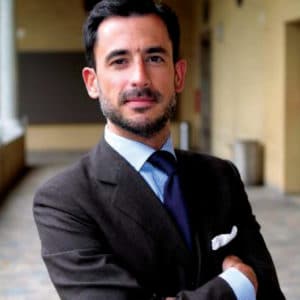
Editorial by Salvatore Sciascia & Dario Voltattorni
What characterises a successful generational handover — one that allows healthy businesses to thrive and those in difficulty to find renewed energy?
Our studies and experience lead us to maintain that underlying this success is the respect of five basic principles: Planning, Equity, Access to external figures, Co-presence and Emotional Readiness. From this we derive the acronym PEACE — a word that also evokes that sense of harmony that every entrepreneurial family wishes for, both within the family and between family and nonfamily members.
Planning
The idea that generational change takes place the moment one generation “hands over the company keys” to the next is common. In reality, however, it is not a single moment but a long process requiring careful planning. Just as a new product launch requires planning, a generational changeover must be planned, with precise deadlines, setting out exactly when and to whom the rights and responsibilities will be transferred.
The plan must be drawn up within the context of a wider strategic project that defines the future vision of the company in terms of strategy and results. Successors must follow training paths and acquire experience outside the company, as well as working and progressing within the company in line with their aptitude, capacity and competences, while predecessors must move towards gradually phasing out their responsibilities.

Equity
“Equity”, to give a simple definition, is the principle by which something is fairly distributed according to merit. Two other main principles may be identified: “equality”, according to which something is shared out in equal parts, and “need” according to which distribution is determined by individual necessity. Equality and need can be considered fair principles in ownership succession (sharing the wealth equally between offspring, or even giving more to the more needy), but not in leadership and management succession, where it is advisable to allocate positions to successors according to merit.
At the point of entry into the company, merit is mainly determined by two factors: relevant studies and external experience. These are fundamental to ensure that successors bring new knowledge and competencies into the company and to legitimise their role in the eyes of all involved (family and non family members). From then on the successors must set out on a path of internal growth, which will gradually lead them to the leadership but only after having demonstrated capacity through the achievement of predetermined objectives – in other words demonstrating proof of deserving the role.
Access to external figures
There are two main types of external figure the company can open up to. Firstly, the baton may be passed totally or partially to an individual who is not part of the family. It is widely believed that in order to speak of a successful generational handover, this must take place within the family circle. What is important, however, is that the transition must ensure that the company maintains the necessary human and financial capital to make sure it can continue to compete successfully, regardless of the name that guarantees this capital.
Secondly, external consultants may be asked to advise the family during this delicate process. A qualified and competent external figure could help the family to face the transition with the emotional distance needed to avoid altruistic and nepotistic choices. Moreover, experience gained on previous occasions could be important in ensuring that the process comes about in the best way possible.

Co-presence
Many entrepreneurs tend to think that the generational handover is an event that takes place in one precise moment: first the older generation is in command, then the younger one takes over the leadership. This is obviously not the case; that moment comes about within a process that may take several years – even decades – and which certainly does not end with the formal transfer of power, but continues even after this formality.
Patience, flexibility and coherence are needed throughout the process to give the company a sense of continuity in a way that is both sustainable and serene. If the older generations fear taking the so-called ‘step back’, it may, in fact, be more useful and desirable to take a ‘step to the side’. Co-presence can allow the transfer of skills built up over time that are often unique and valuable and should not be lost.
Emotional Readiness
A final principle to take into consideration is that of evaluating the emotional readiness of both the incumbent and the successor. On one hand the incumbent must be emotionally ready to follow the path out, otherwise inertia could set in and the likelihood of a process marred by conflict would increase. On the other hand, the successor must be willing to commit to and be emotionally engaged in the company. We can identify several types of commitment on the part of the successor and not all are equally effective: they can be described in ascending order of efficacy.
There are those who wish to enter the family company by necessity, that is they do not really have an alternative: this can be termed imperative commitment. There are those who wish to enter because, although they have an alternative, they realise that going into the family business is the easiest option: this is calculative commitment. There are those who feel a social pressure and family obligation to enter the business: this we may term normative commitment. And finally, there are those who are driven by passion, identification with the ideals and alignment of their own interests with those of the family business: this is affective commitment and it is the most effective.
Authors

Salvatore Sciascia is Full Professor at Cattaneo University – LIUC, where he is also Rector’s Delegate for Research and Co-director of FABULA (FAmily BUsiness LAb). He is responsible for education, research and advisory projects in the fields of Family Business & Strategic Management since 2000. He is also Affiliated Professor at the Centre for Family Entrepreneurship and Ownership (CeFEO) of Jonkoping International Business School (Sweden) and Contract Professor at Lucerne University of Applied Sciences (Switzerland).

Dario Voltattorni is General Secretary of Confindustria Lombardia. Since 2014 to 2021, he has been Executive Director of the Italian Association of Family Businesses – AIDAF -, the institution founded in 1997 by Alberto Falck together with a group of entrepreneurs linked by the same principles. He’s is Adjunct Professor of Family Business Management at Cattaneo University – LIUC and sits, as an independent director, on various boards of directors of small and medium-sized family businesses.









